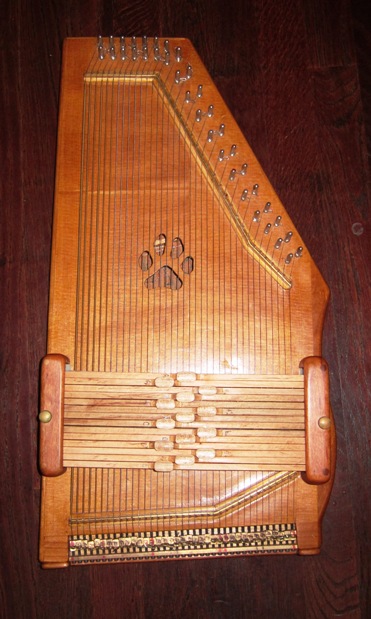Starting a weekly jam session, please give me some tips.
General mountain dulcimer or music discussions
Mandy, you've gotten some great advice so far. Let me underline a few of them.
First, I would forget for the moment about a band. Don't even mention it. Just wait and see and if you find some musicians with whom you click, then you can get together with them. I know of one or two bluegrass bands in the San Francisco area that started asthe core group of a monthly jam and then split off to do their own thing.
You are correct that in bluegrass jams the center of the jam is people taking turns soloing. A premium is also put on speed. You really have to have your chops down to improvise in a bluegrass jam.
But in Old Timey jams no one solos per se. People play the song over and over again. One standard assumption is that to join a bluegrass jam you have to learn the songs beforehand, but you can actually learn them at an Old Timey jam, where the songs are generally played at a relaxed speed, formal solos are frowned upon, and everyone plays either backup or just plays the melody.
At most jams there is either a single leader who chooses the songs and sets the tempo, or people go around in more or less of a circle playing that role. Strumelia is probably right that it is often a fiddle player, but that is not always the case. I know Peter Tommerup leads an Old Timey jam as well as an Irish jam and--if I am not mistaken--a French music jam. He does so playing hammered dulcimer and mountain dulcimer. I've even been to a jam where a singer was the leader. He just new tons of lyrics (like 2/3of Rise Up Singing) and strummed chords on the guitar. He would begin and the rest of us accompanied him. Occasinally he would leave a verse open for a musical interlude and one or two brave souls would attempt a solo, but the stress was clearly on accompanying the vocalist.
Since you don't know what dynamic the jam will take, I would suggest you start to developa repertoir of standard tunes in the standard keys. Then you can get things started by suggesting a tune or two which you know well and which others probably know as well.Maybe you'll get lucky and some other folks will show up with their own repertoir, or maybe someone will show up who's an obvious jam leader and can point you all toward musical paradise.
Good luck. I hope it works out and you both geta regular jam going and also find some kindred musical spirits with whom you might start a band.
P.S. Strumelia's warning about many bluegrass tunes being under copyright is important to remember. But it will only be an issue if you record yourselves and post that recording somewhere, or if the jam is held in a commercial venue like a pub. It you are just friends getting together to play, you can play whatever you want. But if there is an audience, then owner of the venue will be responsible for copyright issues. Usually pub and restaurant owners who often have live music pay regular annual dues to ASCAP to cover themselves.
 And I have yet to name my baritone dulcimer, though the lower range might indicate a male voicing. I'm thinking Otis.
And I have yet to name my baritone dulcimer, though the lower range might indicate a male voicing. I'm thinking Otis.



 I sure love the way those Blue Lions look! (I see trouble ahead! LOL!) And a baritone - another type of dulcimer I sorely need!
I sure love the way those Blue Lions look! (I see trouble ahead! LOL!) And a baritone - another type of dulcimer I sorely need!
It is true that the law only guarantees that you can bring your instrument on board if it fits in the overhead compartment. However, that is more than is guaranteed for other carry-ons which are limited in size.
At a dulcimer festival this past summer I asked Aaron O'Rourke how he traveled with his dulcimers. He uses a David Beede dulcimer with a radiused fretboard whose precise curve is customized and a Clemmer banjammer that has also been fitted with a custom bridge and nut to bring the strings closer together. Neither is easily replaceable, in other words. He puts them in one of those double gig bags which he then puts into one of those huge hard plastic (SKB?) containers made for a set of golf clubs. He surrounds the gig bag with clothes, towels, and other items to make sure it can't move. Since the airlines are used to those large golf bag containers, they seem to handle it OK, though sometimes it costs extra due to its size.